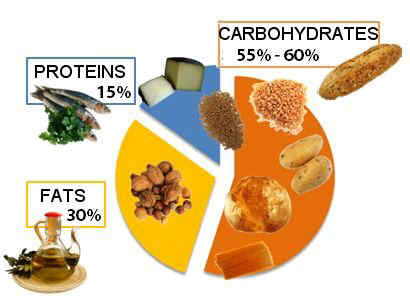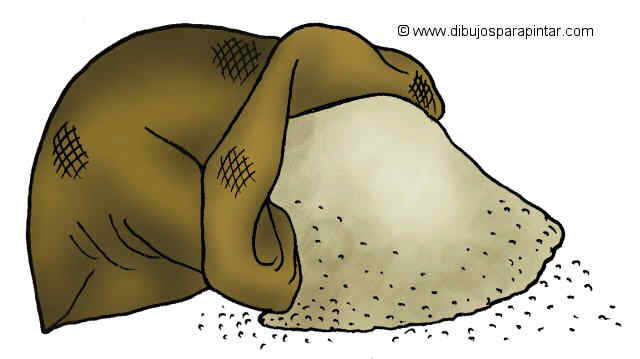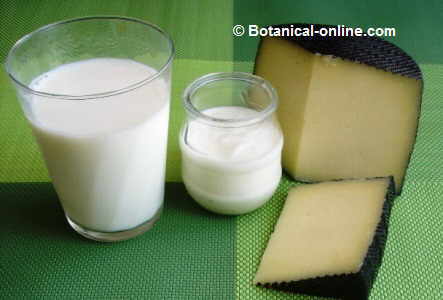Contents
- 1 MEDITERRANEAN DIET CHARACTERISTICS
- 2 What is the Mediterranean diet?
- 3 Origin of the Mediterranean diet
- 4 COMPONENTS OF THE MEDITERRANEAN DIET
- 5 General characteristics of Mediterranean diet
- 6 Curative properties of the Mediterranean diet
- 7 Mediterranean diet nowadays
- 8 A poor diet can cause diseases in the future
MEDITERRANEAN DIET CHARACTERISTICS
What is the Mediterranean diet?
The Mediterranean diet is a dietary pattern and lifestyle, which has been shaped throughout history, the result of the crossroads of cultures that occurs in Mediterranean countries.
Food is a basic pillar in the culture of civilizations, reflecting the changes in society and its evolution over time.
Numerous studies have assessed the food culture and the Mediterranean lifestyle as one of the most complete models and healthy diet.
Origin of the Mediterranean diet
 Photo of main food components in the Mediterranean diet
Photo of main food components in the Mediterranean diet
The mild climate of the Mediterranean region has allowed not only agriculture, but it has also set an openness and sense of harmony with nature, prized since ancient Greece.
It is a historical heritage that, as a result, offers a wide range of foods.
Because the dietary value, nutritional and cultural power of this plan, UNESCO has named it Intangible Cultural Heritage of Humanity.
* More information: History of the Mediterranean diet.
COMPONENTS OF THE MEDITERRANEAN DIET
General characteristics of Mediterranean diet
 General composition of Mediterranean diet Broadly speaking, the Mediterranean diet is characterized by:
General composition of Mediterranean diet Broadly speaking, the Mediterranean diet is characterized by:
- Prevalence of plant foods, rich in vegetables and fruits.
- Wheat, bread and cereals as the main energy source.
- Consumption of olive oil.
- Fish and seafood as their primary source of animal protein.
* More information: Food in the Mediterranean diet
Curative properties of the Mediterranean diet
- Cardiovascular Health: Mediterranean diet helps to improve blood pressure, prevents the formation of atherosclerosis, reduces thrombus formation, reduces bad cholesterol and increases good cholesterol in the blood (more).
- Protects against respiratory diseases: the Mediterranean diet is being studied as a protective factor against lung infections, respiratory allergies, rhinitis and asthma.
- Prevents Alzheimer’s and degenerative diseases: the Mediterranean diet helps improve cognitive functions of the brain and prevent the onset of multiple sclerosis, Parkinson’s disease, senile dementia and Alzheimer. It has also been shown that this diet improves memory and life expectancy of the population. (More)
- Prevents certain types of cancer: the Mediterranean diet is a protective factor against stomach cancer, breast and colon.
* Learn more about all the benefits of the Mediterranean diet in the listing below.
Mediterranean diet nowadays
Bread has been for centuries and millennia at the base of the Mediterranean culture.
However, from the period 1965 – 1987, bread consumption decreases in the population, a diet higher in presence of dairy, meat and its derivatives, while the consumption of other traditional products such as legumes and tubers also diminished.
Do not forget that bread is an energy food, nutritious, easy to digest and does not produce waste in the body.
This food and grains, are the cornerstone for good health and growth, which has allowed the survival of peoples for millennia.
The welfare society, that is living in the most economically advanced societies, has seen how traditional food consumption has shifted to industrial food, quick cooking and eating fast. Often, moreover, these foods are not very nutritious.

Announcement of a “Mediterranean menu” in a restaurant. Fast-food damages the food culture
To the detriment of bread, dietary fats have significantly increased their presence in the diet, through the excess of oil and fried, cooked, baked goods and food industries.
The animal fat in the diet has increased, which has led to increased cholesterol and cardiovascular disease.
The sedentary lifestyle, poor diet and stress of big cities leads to dietary related diseases and malnutrition (by eating a lot, but unbalanced).
A poor diet can cause diseases in the future
Indeed, the loss of healthy eating habits supposes some deficits of minerals and nutrients, such as zinc, calcium, magnesium and essential fatty acids, which can cause long-term illnesses such as infertility, osteoporosis, fibromyalgia or dementia respectively.
![]() More information on Mediterranean diet.
More information on Mediterranean diet.







